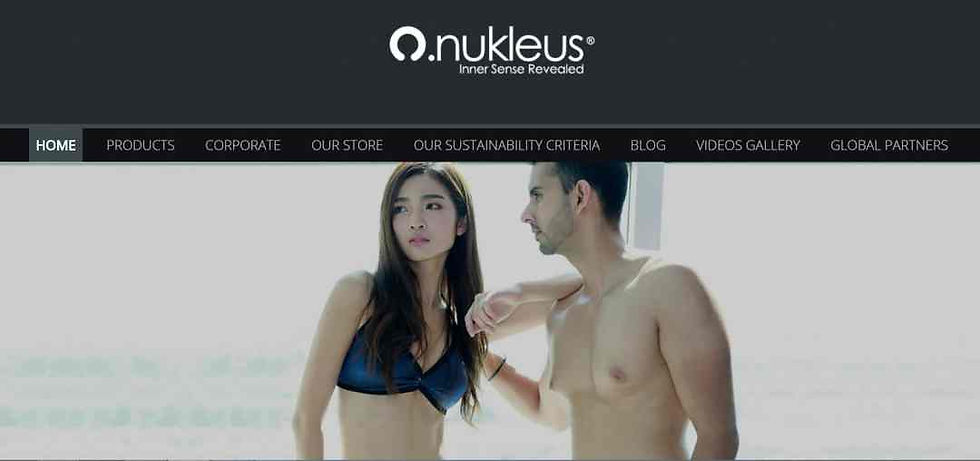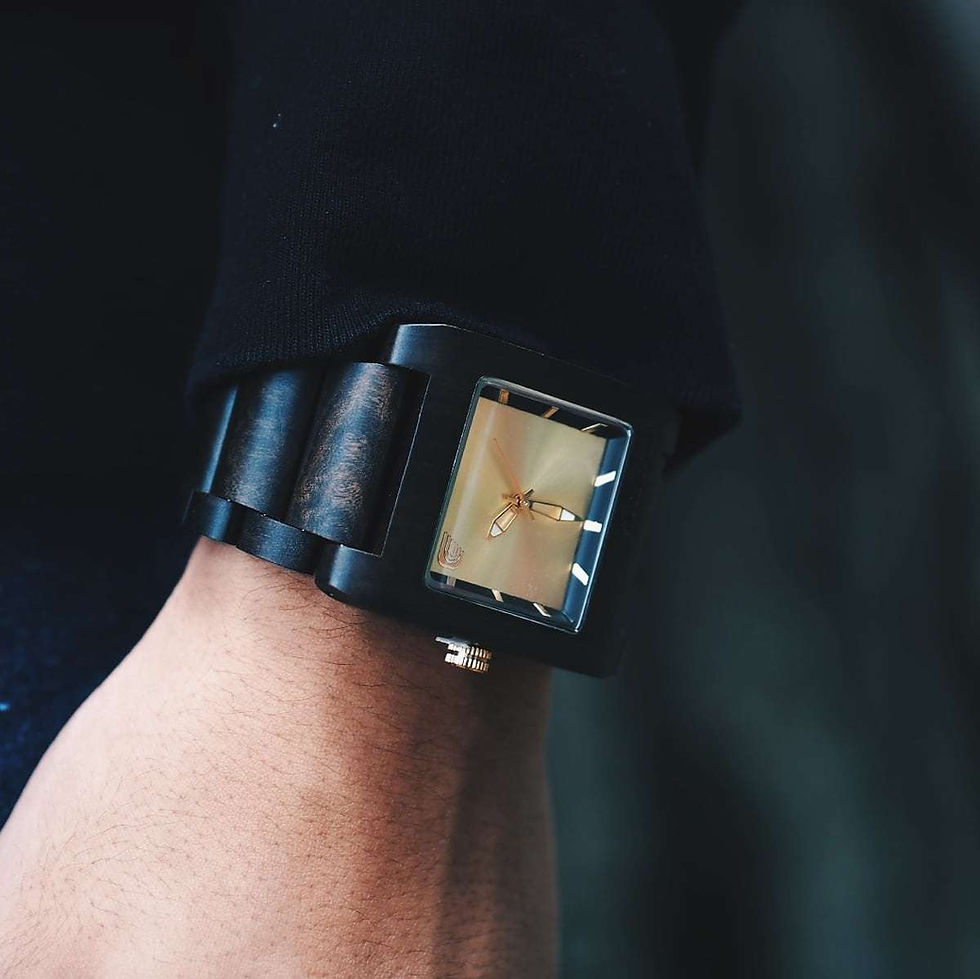BRand of the month: Nukleus
- Sharmila Ganapathy
- Dec 4, 2017
- 4 min read
Ethical underwear producer believes in doing the right thing

Although Nukleus founder and chief executive officer Tan Cheng Woi has a background in investment banking, financial gain is not the primary reason behind his ethical underwear brand Nukleus.
In a recent interview with Fashionably Kind, Tan spoke feelingly of the reasons he started the ethical underwear brand. “Underwear are items very close to the body that we wear for long periods of time. So if you look at it not just from the eco or social point of view, it is also very important from the health perspective. We are talking about something that is free of toxic chemicals and harmful substances. This offers more compelling reasons for consumers to consider switching to sustainable and ethical underwear,” he said via a telephone call from Penang, where the company is based.
The challenges of building an ethical brand
According to Tan, the concept behind an ethical underwear brand came to fruition in 2010, when the brand officially hit the market. “The market is always flush with brands and more so today than before. The challenge is always real and always present. For us, building a brand is already a challenging enough experience, and building a sustainable brand is even more challenging,” he said when asked about some of the challenges the brand has gone through over the years.
For conventional brands, many don’t bother about their impact on the environment and human health; they merely focus on production and marketing themselves. “But being a responsible, ethical brand, there are many things that we need to adhere to. So, we need to ensure we comply with our sustainability criteria in terms of the selection of raw materials, in terms of the manufacturing process, what goes into the production and so forth,” he explained, adding that being sustainable is a top priority for them.
The other challenge is low awareness in Malaysia and Southeast Asia, something that Nukleus contends with even today. “Some are surprised to know there is such a thing as ethical underwear and some laugh about it, not with bad intentions, but this shows that the awareness level is generally still pretty low.
“The challenge of spreading the word and getting consumers to buy into these concepts, things like these have always been an issue that we have to deal with, and still face today, I would think that the awareness is better today, but in a relative context, in the bigger picture, it’s still very low,” he lamented.

Building a mission-driven business
While Tan feels strongly about Nukleus being a “mission-driven business”, he is also realistic about market expectations and acceptance. “At the end of the day, I always tell people that they can have their ideas; you have ambitions, you have missions but ultimately it’s the market that decides whether this brand can strive and survive so consumer endorsement is critically important.”
He shared that he set out with the aim of Nukleus becoming a global brand. “At that time, we understood people were increasingly looking at environmental considerations in the way they make purchasing decisions even though we knew this is just a minority. But we could see that it’s a trend, so we started with environmental considerations in mind to build our product, our sustainability, our criteria, etc.”
However, as Tan and his team delved further into the area via their own research, they were shocked at the issues at the farm level, such as farmers incurring massive debt to purchase pesticides, genetically-modified crops and their overall socioeconomic conditions. “That really shocked us a lot. As a result, we also started to try and work towards something to address that when I look at it, I think organic is the solution to address all these health, environmental, social consequences of conventional content so we are actively promoting organic content in addition to other environmentally-friendly materials.”
He believes that given the challenges they face, they just have to play for the long haul. “It’s the classic case of delayed gratification, when I say gratification it’s not just in terms of the monetary gratification, it’s also about the social, environmental and the missions that the brand carries; the values, the styles and things like that. It will happen but it will happen slowly, not fast.”
Changing consumer habits
Tan points out quite aptly that most consumers are only concerned of the benefits of something to themselves. From his experience, he says, if one tries to sell a brand purely from the social and environmental aspects as the primary motive, these benefits only appeal to a very small segment of the market.
However, if health is involved i.e. wearing materials that contain toxins for long periods, it is a different matter. He believes that if you reason with consumers that this is why they should buy ethical clothes, and apart from that contribute to social and environmental causes, that this type of reasoning will appeal to consumers more than pushing the green agenda.
“The number one thing causing environmental issues is that people think that they and the environment have separate instincts, not realising that whatever happens, you’re only as healthy as your environment.
“People cannot see and associate, I’m talking about the majority, not everyone is like that. But the masses will generally look at it this way. I mean you talk about something this close to them, that they can feel, they can immediately appreciate and all that. I think that will probably move the consumers,” he concluded.
For more information about Nukleus, visit their website at: http://www.nukleusshop.com




Comments